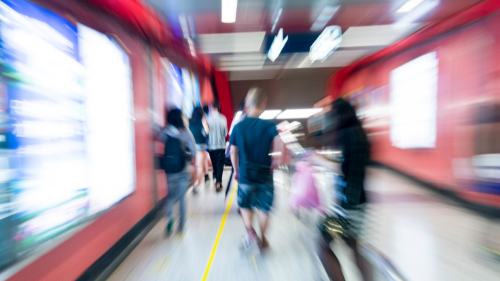Psychological Consequences of Speed in Modern Life and How to Slow Down
From
instant communication to productivity demands, the pace of modern life pushes
us to always go "faster." This constant acceleration has consequences
for our mental health, and learning to slow down can be key to improving our
well-being.
How
Modern Speed Affects the Mind and Emotions
By always
being busy, we leave no time for reflection or processing our emotions. This
lifestyle triggers anxiety, dissatisfaction, and a constant feeling of being
"behind" or not achieving enough. The fast pace affects our ability
to concentrate, as the brain needs time to assimilate information and rest
between activities. Speed also reduces our ability to enjoy the present moments,
as we are constantly thinking about the next thing we need to do. This rush
leads to emotional disconnection, making it difficult to build deep and
satisfying relationships.
The
Impact of "Fast Mode" on Emotional Well-Being
The need to
always be in a hurry profoundly affects emotional well-being. Constant rushing
increases cortisol levels, the stress hormone, and leads to emotional and
physical exhaustion. Living in a constant "fast mode" reduces our
ability to experience pleasure and satisfaction in everyday life. When we are
too focused on the next goal or completing a to-do list, we miss the
opportunity to enjoy the here and now. This lack of connection with the present
makes us feel empty or dissatisfied, as we rarely take time to acknowledge our
achievements or appreciate what we have.
Strategies
to Slow Down and Improve Well-Being
Learning to
slow down requires willpower and a change of perspective. A useful technique is
mindfulness, which helps us focus our attention on the present. Taking short
breaks during the day, such as a walk or breathing exercises, can reduce
accumulated stress and improve mental clarity. Another useful habit is
practicing gratitude, recognizing and valuing small achievements instead of
rushing to meet the next goal. Setting limits on the use of devices and social
media also helps reduce stimulus overload, allowing us to enjoy moments without
haste.
Slowing
down does not mean doing less, but doing things with greater awareness and
presence. This change allows us to live more fully and balanced.
RewPaz



